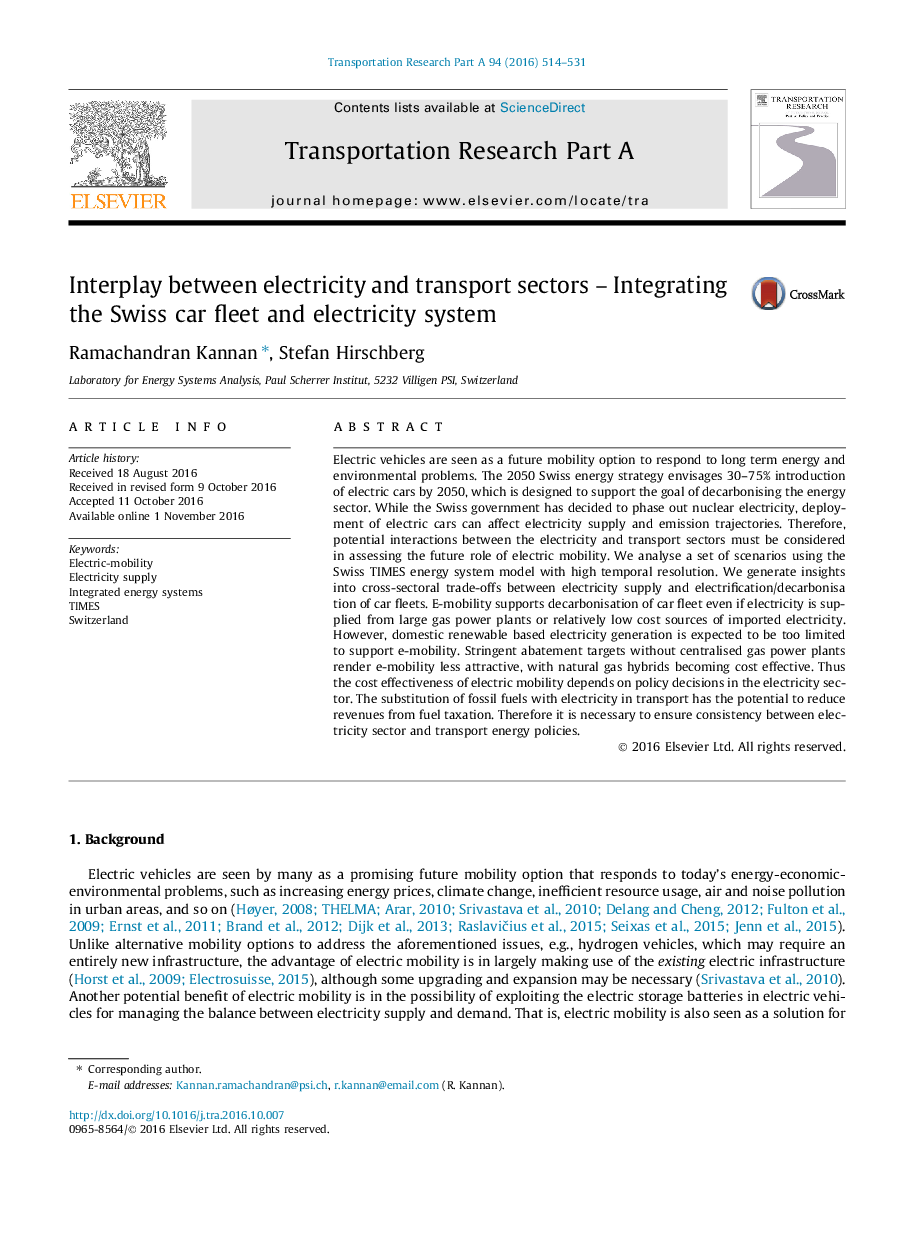| Article ID | Journal | Published Year | Pages | File Type |
|---|---|---|---|---|
| 4929049 | Transportation Research Part A: Policy and Practice | 2016 | 18 Pages |
Abstract
Electric vehicles are seen as a future mobility option to respond to long term energy and environmental problems. The 2050 Swiss energy strategy envisages 30-75% introduction of electric cars by 2050, which is designed to support the goal of decarbonising the energy sector. While the Swiss government has decided to phase out nuclear electricity, deployment of electric cars can affect electricity supply and emission trajectories. Therefore, potential interactions between the electricity and transport sectors must be considered in assessing the future role of electric mobility. We analyse a set of scenarios using the Swiss TIMES energy system model with high temporal resolution. We generate insights into cross-sectoral trade-offs between electricity supply and electrification/decarbonisation of car fleets. E-mobility supports decarbonisation of car fleet even if electricity is supplied from large gas power plants or relatively low cost sources of imported electricity. However, domestic renewable based electricity generation is expected to be too limited to support e-mobility. Stringent abatement targets without centralised gas power plants render e-mobility less attractive, with natural gas hybrids becoming cost effective. Thus the cost effectiveness of electric mobility depends on policy decisions in the electricity sector. The substitution of fossil fuels with electricity in transport has the potential to reduce revenues from fuel taxation. Therefore it is necessary to ensure consistency between electricity sector and transport energy policies.
Related Topics
Physical Sciences and Engineering
Engineering
Civil and Structural Engineering
Authors
Ramachandran Kannan, Stefan Hirschberg,
